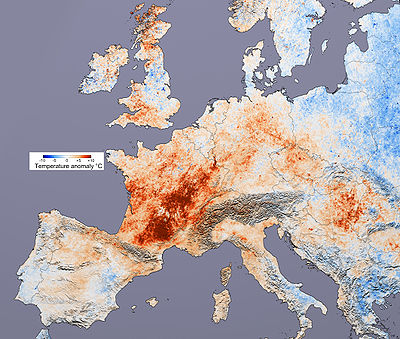AFP |
From the Arctic Circle and Scandinavia to California, Japan and North Africa, an exceptional heatwave has been sweeping across the Northern Hemisphere for several weeks, setting record high temperatures and causing drought and wildfires.
Meteorologists say the summer weather conditions are a result of climate change. “2018 is shaping up to be one of the hottest years on record, with new temperature records in many countries,” said Elena Manaenkova, deputy secretary-general of the World Meterological Organisation (WMO).
“This is no surprise,” she added. “The heatwaves and extreme heat we are experiencing are consistent with what we expect as a result of climate change, caused by greenhouse gas emissions. “This is not a future scenario. It is happening now.”
At the Furnace Creek station in the Mojave Desert’s Death Valley on July 8, the mercury registered 52 C — still below the 56.7 C hit on July 10, 1913, although the historic world record is contested by some experts.
30 C in Arctic Circle
The summer weather in the north of Europe has been especially unusual with the thermostat in the Arctic Circle hitting 30 degrees Celsius (86 degrees Fahrenheit). Record temperatures were reported in northern Norway at 33 C last week, more than 15 degrees C higher than normal, according to the Norwegian meteorological institute.
Another record in Norway was set at Makkaur on the Barents Sea where the mercury in the land of the midnight sun on July 18 never dropped lower than 25 C. And near the Arctic Circle at Kvikkjokk in Sweden temperatures climbed to 32.5 C on July 17, while the Finnish Lapland the next day saw 33.4 C, according to Meteo France.
In Russia’s Siberia, the mercury hit 37.2 C at Tompo on July 9 and 35.5 C at Vanavara on June 26, the US National Oceanic and Atmospheric Agency (NOAA).
Read more: Heatwave grips Northern Europe as Greece burns
Across Europe
In other parts of Europe, a heatwave has moved across Ireland and the British isles to France, though the temperatures have not set record highs.
Southern European countries, in contrast, have seen summer temperatures lower than normal, according to the WMO. But the still hot, dry weather triggered wildfires in Greece, claiming at least 82 lives, making them Europe’s deadliest this century.
Japan and North Africa, an exceptional heatwave has been sweeping across the Northern Hemisphere for several weeks, setting record high temperatures and causing drought and wildfires.
41 C in Japan
In Japan, several dozen people have died in the scorching heat which reached a national record of 41.1 C at Kamagaya on Monday, official data showed. The same day it reached more than 40 C for the first time in Tokyo’s metropolitan region.
Read more: European heatwave brings drought, wildfires
African Record?
In the Sahara desert of Algeria on July 5, the mercury soared to 51.3 C, which was probably “the highest ever recorded in Algeria by reliable instruments”, the WMO said. It is likely a record for the African continent, since reliable records began, according to Meteo France.
But if the WMO recognises data from Africa’s colonial period as reliable, the 55 C temperature reached in Tunisia in 1931 would still be considered as the African record. Neighbouring Morocco has also seen a new national record temperature at 43.4 C on July 3 at Bouarfa, the WMO said.
And in the Middle East, on the coast of Oman on the Arabian Peninsula, the temperature never fell below 42.6 C, even at night, on June 28, which could be the highest minimal temperature ever registered there, the WMO said.
Read more: Greek fires a tragedy but not a surprise
California’s Death Valley
In the United States, California has been under scorching heat, including record temperatures on July 6 of 48.9 C in Chino in the west of the state, and the next day 47.2 C in the Van Nuys neighbourhood of Los Angeles.
At the Furnace Creek station in the Mojave Desert’s Death Valley on July 8, the mercury registered 52 C — still below the 56.7 C hit on July 10, 1913, although the historic world record is contested by some experts.
© Agence France-Presse














